The publication of Sláintecare has provided unprecedented political consensus on the future direction for the Irish health service. I intend to harness this consensus and work with colleagues across the political spectrum to move forward on a programme of health reform.
I know that members of the IMO are well aware of the many challenges of implementing significant reform in our health system.
We now have an opportunity, working with all stakeholders, including the IMO, to design a programme of reform across the system, to improve health and wellbeing for all our citizens. Our continuing motivation must be our shared and agreed ambition to better serve the people of Ireland and to help shape a healthier future. I look forward to, and welcome, your constructive input to this reform process.
<h3><strong>Demands on the system</strong><strong></strong></h3>
The Committee on the Future of Healthcare was established in recognition of the fact that our current health system, despite notable achievements, is not best placed to meet the demands of future generations. We must design a system to meet the many challenges in the years ahead. These challenges include a growing population, an ageing population, increases in the incidence of chronic conditions, availability of staff — especially clinical staff — capacity deficits and clinical and technological breakthroughs which are expanding what is expected from the system.
Doing nothing is not an option — we must act now to plan for current and future needs.
The recommendations in the <em>Sláintecare Report</em> are grounded in eight overarching principles that I fully endorse. I believe that they provide a solid foundation on which to build a fair, modern and responsive health service that inspires long-term public and political confidence. They support a re-orientation of the health service towards a high-quality, integrated system providing care on the basis of need and not ability to pay; a universal system providing the right care in the right place at the right time, by the right people.
<h3><strong>Reform </strong><strong></strong></h3>
The report also points to the need to create an enabling environment for reform. This is an environment where the workforce is appropriate, accountable, flexible, well-resourced, supported and valued, with accountability, value for money and good governance at the heart of the system. I believe that this describes a healthcare system that will command the support of the people of Ireland and will meet their needs.
The development of a Sláintecare Implementation Plan is now well advanced and it is expected that this will be brought to Government for consideration very shortly. The Implementation Plan will translate the <em>Sláintecare Report</em> into an ambitious programme for the next 10 years, including a more detailed programme for the next few years.
Sláintecare recognises the importance of developing our primary care services. I share this vision. The findings of the Health Service Capacity Review, published in January, are consistent with Sláintecare and highlight the challenges we face. The Review identified the need for investment and reform across key areas of our health services, acute care, primary care, and services for older people.
<h3><strong>General practice </strong></h3>
GPs play a very important role in the primary care system. I am delighted that the number of GPs on the specialist register continues to increase — up from 3,014 in 2014, to 3,637 in 2017. There are now 2,484 GPs contracted to the HSE under the GMS scheme, compared to 2,139 in 2009.
However, I am conscious of the manpower pressures facing general practice and for that reason, I have ensured that we will continue to increase the number of training places for GPs. In 2016, there were 172 training places. This year, we expect to fill over 190 training places and this will rise to 259 places in coming years.
It is generally accepted that there is a need to modernise the current GMS contract and ensure that general practice benefits patients and is a viable and rewarding career for our current GPs, as well as our medical graduates.
My aim is to develop a contract which has a population health focus, providing in particular for health promotion and disease prevention and for the structured, ongoing care of chronic conditions. We need a contract which is flexible and is able to respond to the changing nature of the GP workforce. It must also include provisions in relation to service quality and standards, performance, accountability and transparency.
It is important to ensure that any new contract will result in service improvements across general practice, benefiting both patients and GPs. As with other health contractors, general practitioners were subject to fee reductions under FEMPI. I am glad that talks with GP representative bodies, aimed at putting in place a new multi-annual approach to fees, will begin shortly.
<h3><strong>Acute hospitals </strong></h3>
I appreciate that there is a particular capacity deficit in the acute sector that must be addressed and I am committed to doing so. The Capacity Review highlights that Ireland’s acute hospital occupancy levels are around 95 per cent, far in excess of the international norm of 85 per cent. These occupancy levels mean that hospitals, on a regular basis, have extremely limited available ‘surge’ capacity. I recognise that this puts particular pressures on consultants, NCHDs and all other staff working in our hospitals.
I appreciate that working conditions are a significant factor in our ability to recruit and retain medical staff. I am pleased that we have now reached almost 85 per cent compliance with the 48-hour average working week requirement in the Working Time Directive in respect of NCHDs. I also acknowledge the successful roll-out of the Lead NCHD initiative. However, I want to see further progress in a number of key areas, including protected training time and the position of doctors in service posts.
We have again made progress in increasing consultant staffing in the past year and the Implementation of the Consultant Recruitment Group Report has improved the recruitment and appointment process for consultants, with an increase of 109 consultants during 2017. However, significant difficulties remain and in particular, specialties and locations. The Public Service Pay Commission is looking at certain health workforce personnel, including consultants, where it has already identified there are recruitment and retention issues. Their report is expected in June 2018.
<h3><strong>Public health </strong></h3>
As highlighted in the <em>Sláintecare Report</em>, Ireland’s ageing population and the increasing prevalence of chronic diseases requires a strong reorientation away from the current emphasis on acute and episodic care. This reorientation requires an appreciation of the wider forces impacting on health and the importance of health equity, a commitment to continuously improving the quality of health services and safeguarding high standards of care and, above all, clinical leadership which aims to shift the focus from the individual patient to the wider population that needs to be served.
I recognise the key skills that public health physicians can bring to the Irish health system and I welcome the imminent publication of the review of public health medicine by Crowe Horwath. It is anticipated that this review will detail in its recommendations measures required to ensure that it operates in an effective, sustainable manner into the future.
Finally, I would like to again thank you for your ongoing commitment to the delivery of care to the Irish population. I am committed to providing the framework and resources necessary, so that we can work together to create a better health service for the Irish people.
<strong><em>Simon Harris is Minister for Health</em></strong>

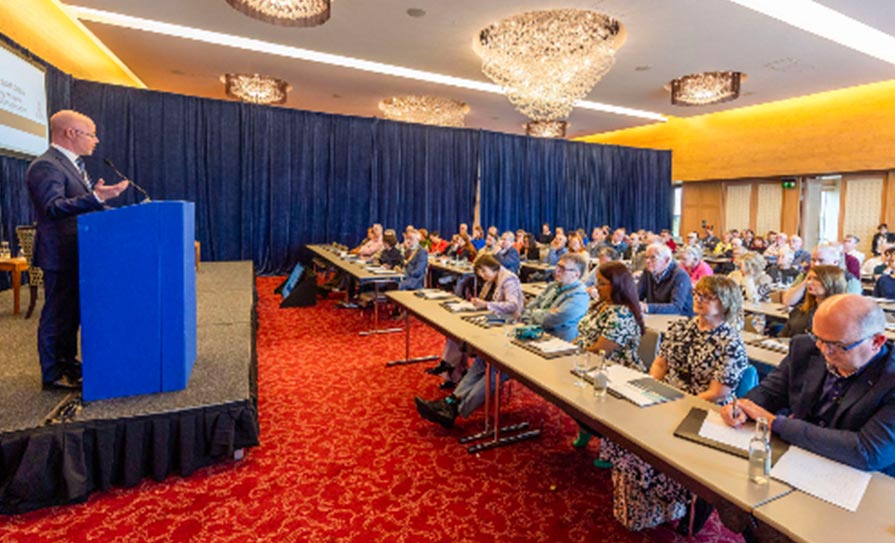

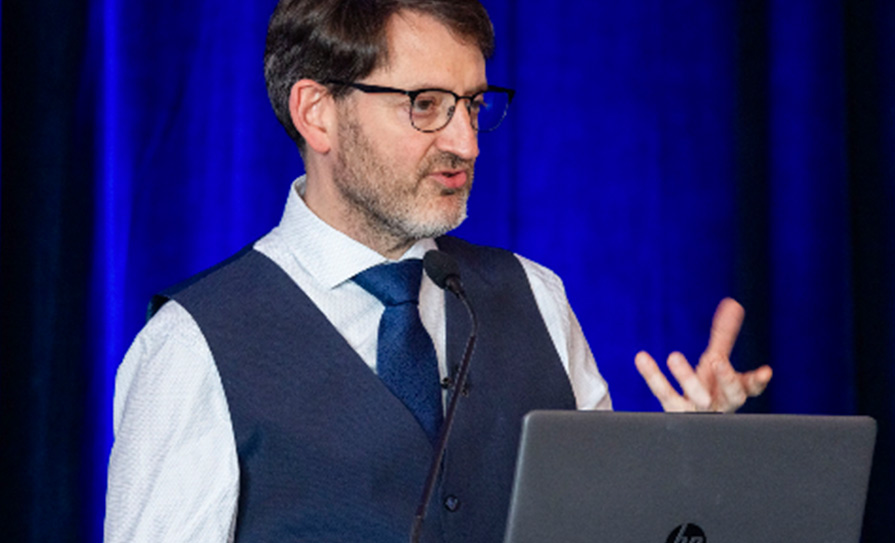
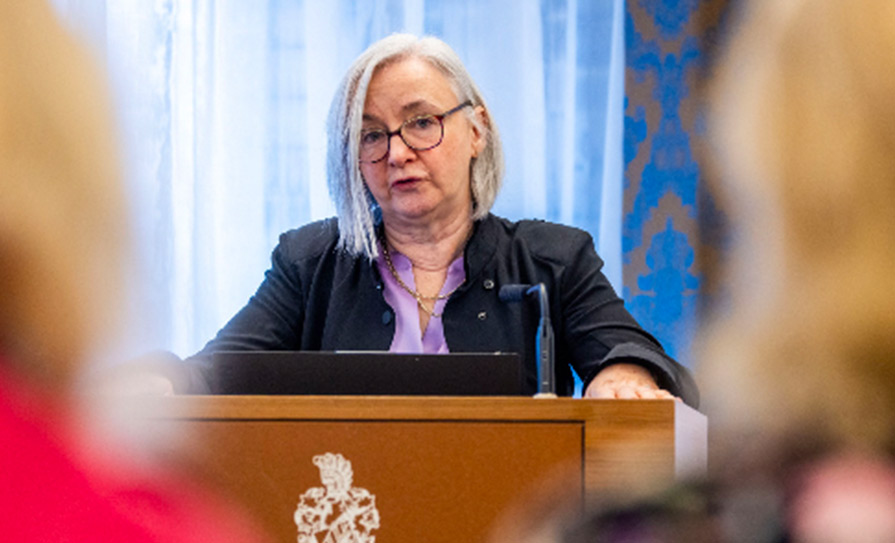
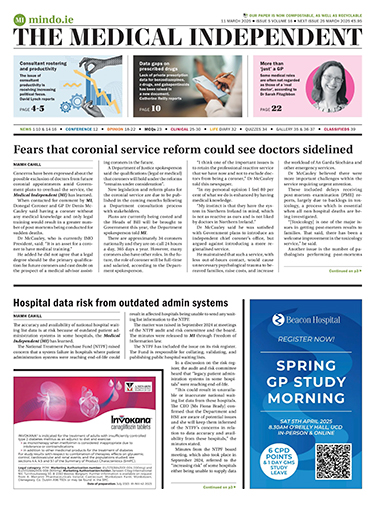
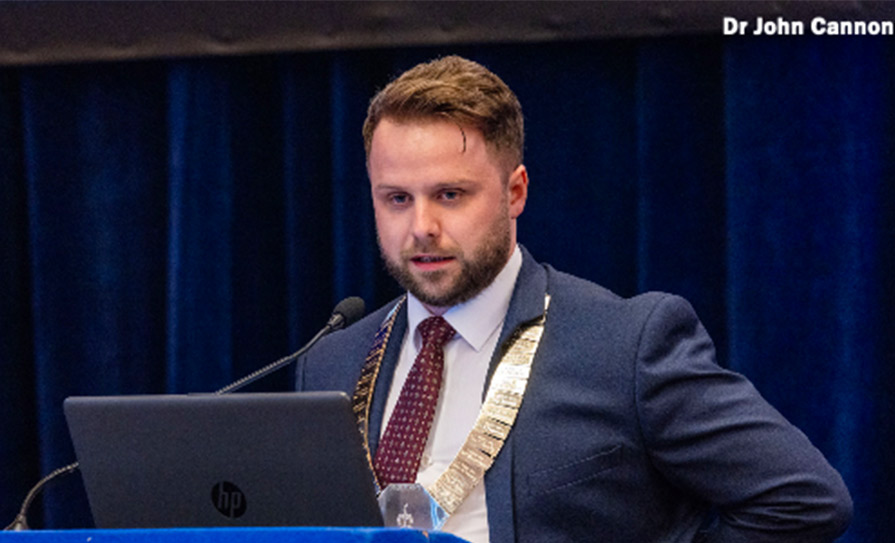





Leave a Reply
You must be logged in to post a comment.